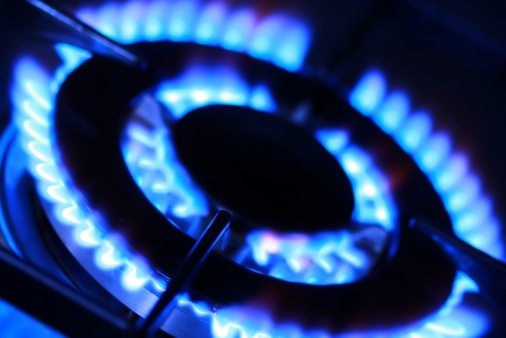
Natural gas futures for February delivery traded down more than 2% in advance of the EIA’s report, at around $2.90 per million BTUs, and fell more than five cents immediately following the report. Natural gas futures have tumbled from a high of around $3.35 per million BTUs since last week. The 52-week low for natural gas futures is $2.78.
The weather forecast for the rest of this week and into next week calls for more winter-like temperatures across most of the country, with some colder air at times pushing into the southeastern United States. Temperatures west of the Rockies are expected to be warmer than normal. All this adds up to more moderate demand for natural gas this week, roughly the same as demand was a week ago.
Stockpiles are about 8.2% above their levels of a year ago and about 5.5% below the five-year average. The relatively milder weather so far in the heating season has curtailed stockpile drawdowns, compared with last year’s much colder weather.
The EIA reported that U.S. working stocks of natural gas totaled 2.64 trillion cubic feet, about 153 billion cubic feet below the five-year average of 2.79 trillion cubic feet and 199 billion cubic feet above last year’s total for the same period. Working gas in storage totaled 2.44 trillion cubic feet for the same period a year ago.
ALSO READ: States With the Highest (and Lowest) Gasoline Taxes
Here is how stocks of the largest U.S. natural gas producers reacted to the latest report:
Exxon Mobil Corp. (NYSE: XOM), the country’s largest producer of natural gas, was down fractionally Thursday morning, at $91.86 in a 52-week range of $86.19 to $104.76.
Chesapeake Energy Corp. (NYSE: CHK) was down about 2.6%, at $19.35 in a 52-week range of $16.41 to $29.92.
EOG Resources Inc. (NYSE: EOG) was down about 0.5% to $90.04. The 52-week range is $80.63 to $118.89.
Also, the United States Natural Gas ETF (NYSEMKT: UNG) was down about 4.4%, at $14.37 in a 52-week range of $14.09 to $27.89.
It’s Your Money, Your Future—Own It (sponsor)
Retirement can be daunting, but it doesn’t need to be.
Imagine having an expert in your corner to help you with your financial goals. Someone to help you determine if you’re ahead, behind, or right on track. With SmartAsset, that’s not just a dream—it’s reality. This free tool connects you with pre-screened financial advisors who work in your best interests. It’s quick, it’s easy, so take the leap today and start planning smarter!
Don’t waste another minute; get started right here and help your retirement dreams become a retirement reality.
Thank you for reading! Have some feedback for us?
Contact the 24/7 Wall St. editorial team.




